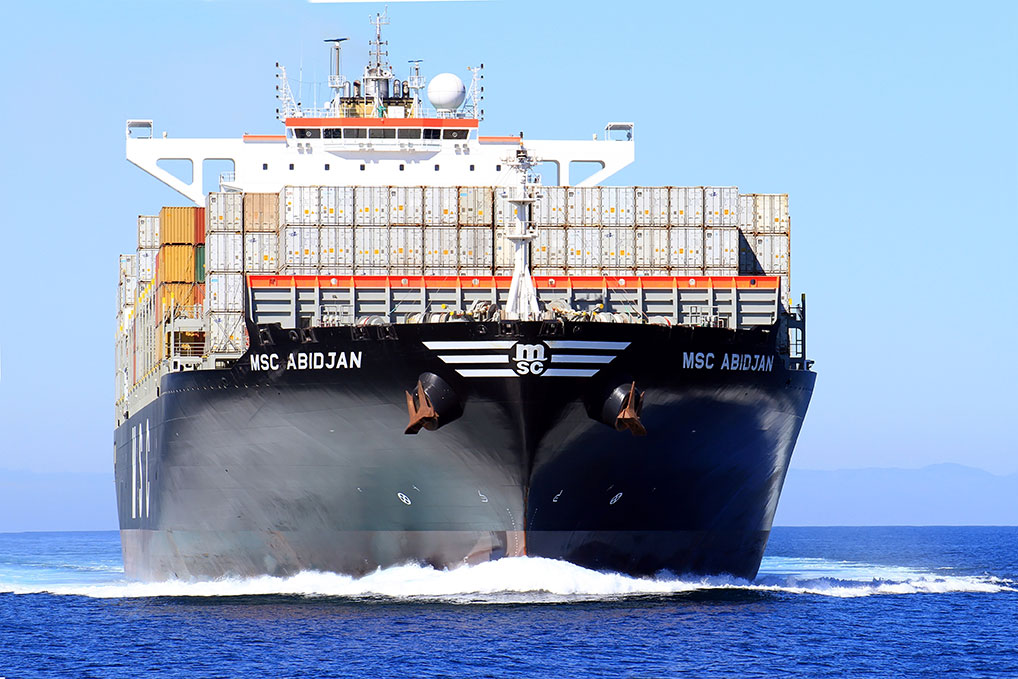Trade Finance and Services
We make short-term investments in assets linked to trade finance and services activities including documentary and stand-by letters of credit, guarantees, acceptances, open account financing, financial supply chain solutions, prepayment, and other specialized financing. Transactions typically involve the flow of goods or services (typically of a cross-border nature) and a financing need, and are subject to significant individual variation.

Buyer’s credit.
A financing arrangement typically made by a lending institution in the supplier’s (exporter) country directly with the buyer (importer). This type of facility may also be extended to a bank in the buyer’s country which enables the buyer to make payments due to the supplier under a contract.
Contract frustration and trade credit indemnity.
This is a form of insurance coverage which provides indemnification (typically a supplier or bank) for the non-payment of trade debts. Policies can be tailored to suit the insured’s requirements, encompassing not only insolvency risk on goods delivered, but also pre-delivery costs, the non-honoring of Letters of Credit, or non-delivery of pre-paid goods.
Cross border leases.
Involve the leasing of equipment by a lessor in one country to a lessee in a different one. These are often structured with insignificant residual value.
Export credit agency (ECA) financing.
A facility where an export credit agency (example U.S. Export Import Bank) acts as lender, co-lender or guarantor to facilitate exports. Other ECA’s assist local companies to facilitate strategic imports.
Import finance.
An extension of credit facilities to an importer which may be structured in various ways to facilitate imports.
Inventory finance.
An extension of credit which may be made to an importer or exporter, secured by the physical inventory held and owned by that borrower. The inventory may be held in a warehouse controlled by the borrower, lender, or an independent party.
Letter of Credit (L/C).
A written undertaking, or obligation, issued by a bank made at the request of its customer (usually an importer) to honor or pay an exporter against presentation of trade documents that comply with terms specified in the letter of credit.
Multilateral agency financing.
A credit facility where a multilateral agency acts as either a lender or a co-lender. Such a facility may have the advantage of a preferred creditor status in the event of shortages of foreign exchange that may be experienced by sovereign governments.
Pre-export finance.
An extension of credit to an exporter prior to the export of goods. This facility may be secured by the underlying goods, sales proceeds, or may be unsecured.
Pre-payment agreement.
An extension of credit to an exporter in which the future export of goods is the source of pay-back. This differs from a pre-export finance arrangement in that it may involve the buyer of the goods as a contractual party and is effectively a payment for goods in advance of delivery.
Promissory notes, bills of exchange and other forms of negotiable instrument.
A written promise to pay issued by (or drawn on) an obligor in favor of a beneficiary.
Receivables.
Receivables or flows of receivables created in consideration for the transfer of goods and services.
Supplier Credit.
An extension of credit made by a supplier (or exporter) to a buyer (or importer) to finance a purchase of goods. Lenders may purchase or participate in the credit instrument if the instrument permits transfer.
Trade finance related loans and other loan assignments and participations.
We may make direct loans, purchase trade finance loans and make other loans by assignment, transfer or novation from a participant in the original syndicate of lenders or from subsequent holders of such interests. We may also purchase participations on a primary basis from a mandated lead arranger during the formation of the original syndicate making such loans.

